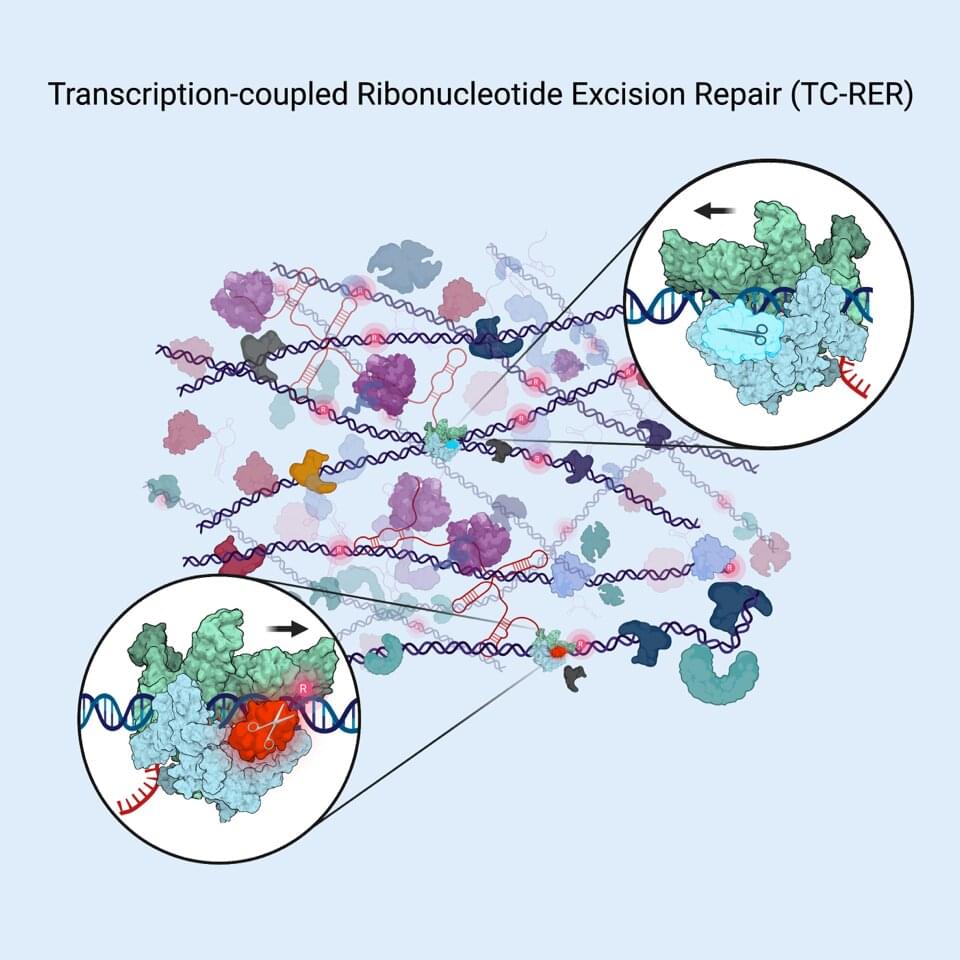DNA Module B Bio B ppt download Biology Diagrams Recent studies have provided insights into the mechanisms that regulate DNA repair in specific cell-cycle phases and the pathways that ensure cell-cycle progression or arrest in normal and The replication of DNA occurs during the synthesis phase, or S phase, of the cell cycle, before the cell enters mitosis or meiosis. Most mistakes are corrected during replication, although when this does not happen, the mismatch repair mechanism is employed. Mismatch repair enzymes recognize the wrongly incorporated base and excise it from However, robust DNA repair and damage-bypass mechanisms faithfully protect the DNA by either removing or tolerating the damage to ensure an overall survival. Deviations in this fine-tuning are known to destabilize cellular metabolic homeostasis, as exemplified in diverse cancers where disruption or deregulation of DNA repair pathways results in

Thus, in yeast, the presence of DNA damage can block entry into the G 1 phase; it can slow DNA replication once begun; and it can block the transition from S phase to M phase. The DNA damage results in an increased synthesis of some DNA repair enzymes, and the delays further facilitate repair by providing the time needed for repair to reach It is also well established that TLS is functional outside the S phase of the cell cycle and can patch ssDNA arising in the G0 and G1 phases [112,113,114]. 7. Conclusions and Outlook. Although neither TLS nor TS directly repair DNA damage, both PRR mechanisms enable an immediate response to polymerase stalling DNA lesions. During an unperturbed S-phase, DNA lesions and aberrant DNA structures arise as a consequence of normal DNA replication. Recent data suggest that the same pathways regulating the response to acute DNA damage also operate during normal S-phase to maintain genome integrity in the face of low levels of damage. Molecular mechanisms of mammalian

Molecular Biology of the Cell Biology Diagrams
DNA errors occur during S phase; DNA repair mechanisms occur in G 2 phase before cells can proceed to M (mitosis). To progress from G 2 to M, cdc2 (red) activation needs to occur. Cdc2 becomes activated when coupled with its cofactor, cyclin B (green); then, the complex becomes phosphorylated at threonine 160 residue by the cdk7, also known as During the DNA-synthesis (S) phase of each cell-division cycle that is undertaken by any of the 10 13 -10 14 cells in our body, one of the miracles of life occurs — the entire human genome The choice between these pathways depends on cell-cycle phase; however the continuous effect of cell cycle on the balance between them is still unclear. Quantitative live cell imaging reveals a gradual shift between DNA repair mechanisms and a maximal use of HR in mid S phase Mol Cell. 2012 Jul 27;47(2):320-9. doi: 10.1016/j.molcel.2012.

